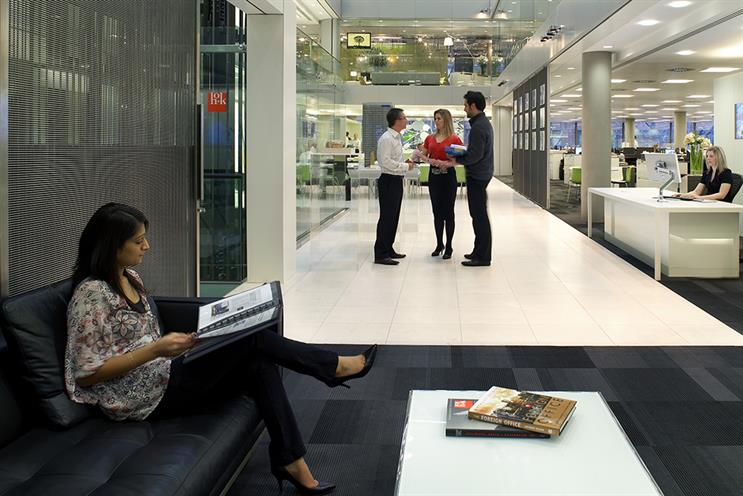ŌĆ£Daddy, what did you do in the great Covid crisis? Why itŌĆÖs our national duty to get back to the office.ŌĆØ No, this is not a spoof. It is a genuine headline from The Times newspaper. In 2020. A slap in the face for the ongoing push for equality, and a reflection of how womenŌĆÖs careers have been collateral damage in the coronavirus crisis. For the creative and media industries, this headline and its implicit everyday sexism also serves as an urgent reminder of just how important inclusion is for organisations and brands that have such a pivotal role in setting the tone for broader cultural debate.┬Ā
When we look back on lockdown, there will doubtless be myriad lessons to be learned, but top of that list must be the cautionary tale of what happens when women arenŌĆÖt in the room. Of what happens when we donŌĆÖt see childcare as infrastructure and we donŌĆÖt hear womenŌĆÖs voices. Or worse still, they are excluded entirely. So much so that we donŌĆÖt even recognise the perfect storm of the collective ŌĆ£return to the officeŌĆØ bravado with the onset of summer holidays and a childcare sector on the brink of collapse.
The industry is facing significant economic challenges, but the time for difficult questions is now. Exactly what message is the industry giving the next generation of female talent when working mothers and women in their fifties are disproportionately facing redundancy?
The motherhood penalty
The motherhood penalty is having a devastating impact on womenŌĆÖs careers. Research across almost 20,000 women from Pregnant Then Screwed showed almost half (46%) of employed mothers who have been made redundant, or expect to be made redundant, said that a lack of childcare provision played a role in their redundancy, while 72% of mothers have had to work fewer hours because of childcare issues. In addition, 65% of mothers who have been furloughed said that a lack of childcare was the reason.┬Ā
Creative Equals and ░õ▓╣│Š▒Ķ▓╣Š▒▓Ą▓įŌĆÖs Covid-19 Inclusion Pulse shows that women and minority groups have reported higher levels of psychological stress and unfair treatment at work during the Covid-19 crisis. Women were also more likely than men to report unfair treatment, with 16% of women feeling this way ŌĆō rising to 22% of working mothers ŌĆō compared with only 7% of men. Percentages that are difficult to swallow but the stories behind them are harder still.
From the new business director conducting a pitch from her kitchen, while her son, who has autism, proceeded to climb over her garden fence into her next-door neighbourŌĆÖs garden, to the single mother whose back-to-back Zoom calls and boundary-free working days led to impending burnout and antidepressants, the crisis demands empathetic leadership, not lazy, masculine rhetoric.┬Ā
Of course, there are companies that should be commended for recognising and responding to the perfect storm in family life with empathy and accountability. Agencies such as Digitas and Crispin Porter Bogusky have led the way with protected ŌĆ£meeting freeŌĆØ periods of the day, while Creative Equals, despite its resources being stretched, has offered free, inclusive training and support for individuals, regardless of their seniority or job title.
An erosion of rights, responsibilities and role models
Yet despite these best efforts, the coronavirus crisis has led to the expansion of womenŌĆÖs responsibilities, combined with the erosion of our rights and economic freedom. For the creative industries, there is also the devastating impact of the loss of womenŌĆÖs most finite resource: time. Sentences are left unfinished, projects paused before they even get going, career-limiting decisions to step aside from crucial pitches taken in the blink of an eye.
Then there is the loss of our industryŌĆÖs most precious and fierce resources: role models. Those brilliant women who defied the odds to lead on their own terms, who now find themselves navigating the emotional and economic fallout of redundancy. That, in 2020, the industry should lay waste to the creative firepower of older women is unforgivable. It is a reflection of marketingŌĆÖs long-established track record of failing to take older women seriously.
It would be all too easy to conclude that it is simply complacency that is leading to this brutal inequality. Certainly, barely a week goes by without another conference organiser rising to the opportunity for inclusion afforded by virtual events by promoting all-white, all-male speakers. An act of corporate gaslighting that prompts the question ŌĆō does the industry really care about equality?┬Ā
Who even has the time and energy to call out a sexist headline? To take on the passive-aggressive, Groundhog Day of the same white, male faces on the conference circuit? To invest in robust training to ensure your redundancy process or return to the office strategy is not irrevocably stacked against working mothers or women of colour? It's much easier to lament the rise of ŌĆ£call-out cultureŌĆØ than do the hard work of speaking up and challenging the status quo.
But the cost of this silence is womenŌĆÖs careers. So now is the time to stop arguing that we donŌĆÖt have the time or the budgets to address this mounting inclusion crisis. For if we fail to take collective action, to speak up and take accountability on making inclusion a KPI, we are all complicit in being bystanders to the biggest threat to equality in our lifetime.┬Ā
So many of us have lost so much in this crisis. Yet the very real danger for the industry is that, so overwhelmed with the emotional and economic challenges ahead, we collectively miss the opportunity for a positive reset.┬Ā
So, please, rather than lamenting the loss of office banter, take a long, hard look at the industry around you and ask yourself: what am I going to do to make it a better, more inclusive space? For the "great return to the officeŌĆØ is simply not worth aspiring to if women are no longer in the room.┬Ā
Nicola Kemp is editorial director of BITE at Creativebrief┬Ā
Picture: Getty Images/View Pictures



